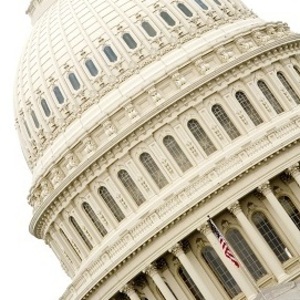NBB welcomes longtime aide to US Sen. Grassley to lead DC office

December 11, 2017
BY The National Biodiesel Board
The National Biodiesel Board is pleased to announce that Kurt Kovarik, a senior adviser and legislative director of U.S. Sen. Chuck Grassley, R-Iowa, has accepted the position of vice president of federal affairs at NBB. Kovarik will join NBB the week of Jan. 8.
“Kurt’s decades of experience in the U.S. Senate will serve us well as we navigate the federal policy issues that most affect our industry,” said Donnell Rehagen, CEO of NBB. “His long history of working on energy and tax legislation, his familiarity with the key players in Washington and his knowledge base on biofuels are all reasons why we are so happy to have him on our team. Growing up on a farm in Iowa, Kurt understands the strong connections between the biofuels, agriculture and livestock sectors, as well as the importance of continuing to establish America’s energy independence.”
“Biodiesel has the potential for more—more jobs, more economic growth, more diversity in our fuel supply,” said Doug Whitehead, chief operating officer at NBB. “But market certainty signaled by consistent federal policy is essential for meeting that potential. It’s been an honor to have spent the last several months in the nation’s Capital working alongside our members to secure more consistent federal policy signals. I look forward to continuing to work in D.C. over the coming months to ensure Kurt has a smooth transition into this critical role for our industry.”
Kovarik has served as the legislative director for Grassley since January 2017. As legislative director, Kovarik led the senator’s policy staff, coordinating and monitoring legislative efforts and developments. Kovarik first joined Grassley’s office as a press intern in August 1997. He served as a legislative assistant since 2001. In addition to his work on budget, labor and foreign affairs, Kovarik negotiated and led Grassley’s efforts on the inclusion of biodiesel in the Renewable Fuel Standard, developed strategies to expand and extend the biodiesel tax incentive, and advocated increased use of biofuels through oversight activities.
The NBB is headquartered in Jefferson City, Missouri, and has had an office in Washington, D.C., for more than 10 years. The NBB is the U.S. trade association representing the biodiesel and renewable diesel industries, including producers, feedstock suppliers and fuel distributors. In terms of federal policy issues, the trade association has been primarily focused this year on increasing volumes in the Renewable Fuel Standard, reinstating the biodiesel tax incentive and securing relief through several trade petitions on unfairly traded biodiesel imports. These efforts contribute to growing the biodiesel industry that already supports nearly 64,000 jobs across the U.S.
Advertisement
Advertisement
Advertisement
Advertisement
Related Stories
The USDA has announced it will delay opening the first quarterly grant application window for FY 2026 REAP funding. The agency cited both an application backlog and the need to disincentivize solar projects as reasons for the delay.
CoBank’s latest quarterly research report, released July 10, highlights current uncertainty around the implementation of three biofuel policies, RFS RVOs, small refinery exemptions (SREs) and the 45Z clean fuels production tax credit.
The U.S. EPA on July 8 hosted virtual public hearing to gather input on the agency’s recently released proposed rule to set 2026 and 2027 RFS RVOs. Members of the biofuel industry were among those to offer testimony during the event.
The USDA’s Risk Management Agency is implementing multiple changes to the Camelina pilot insurance program for the 2026 and succeeding crop years. The changes will expand coverage options and provide greater flexibility for producers.
President Trump on July 4 signed the “One Big Beautiful Bill Act.” The legislation extends and updates the 45Z credit and revives a tax credit benefiting small biodiesel producers but repeals several other bioenergy-related tax incentives.
Upcoming Events










